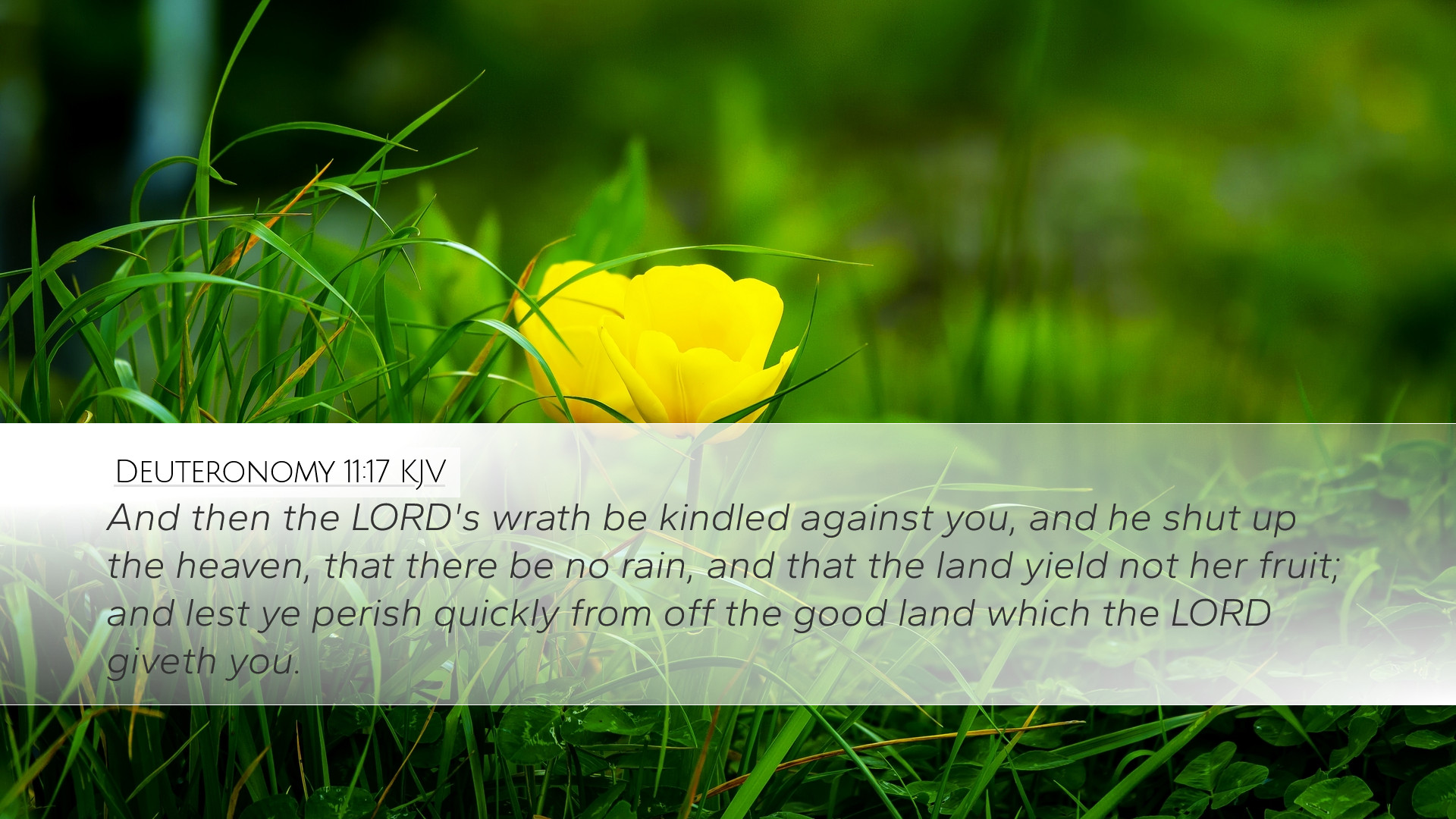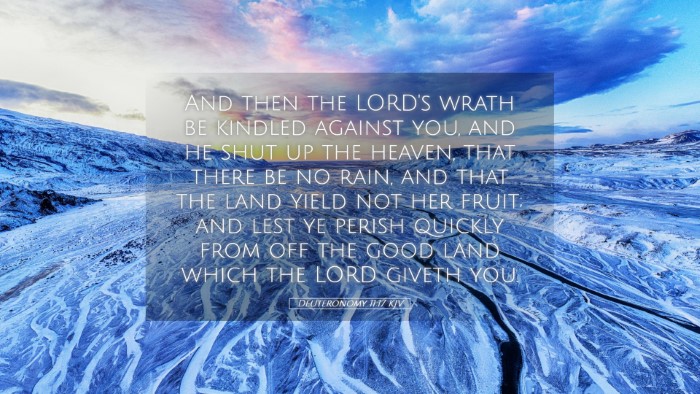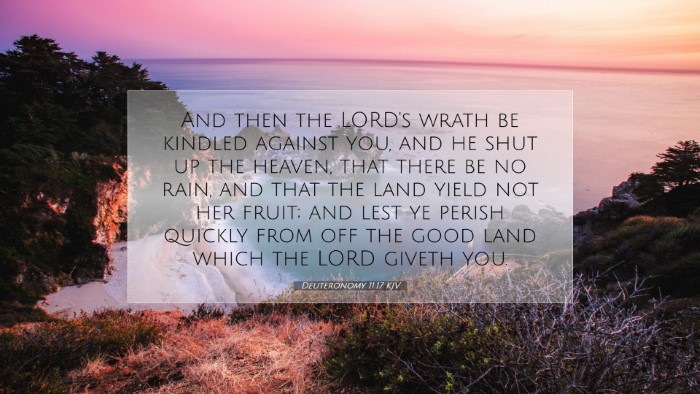Commentary on Deuteronomy 11:17
Verse Text: "And then the LORD's anger will be kindled against you, and he will shut up the heavens, so that there will be no rain, and the land will yield no fruit; and you will perish quickly off the good land that the LORD is giving you."
Introduction
Deuteronomy 11:17 serves as a significant warning to the Israelites, emphasizing the consequences of turning away from God's commandments. This verse encapsulates the broader theme of covenant fidelity in the book of Deuteronomy, where Moses reminds the people of the importance of obeying God to receive His blessings.
Contextual Analysis
This verse is situated within a larger passage that outlines the blessings of obedience and the curses of disobedience. The Israelites were on the brink of entering the Promised Land, and Moses, as their leader, reiterates the necessity of faithfulness to God's statutes.
- Moses' Role: Moses acts as a mediator, urging the people to remain steadfast in their devotion to God.
- The Significance of the Land: The "good land" symbolizes not just a physical inheritance, but denotes spiritual abundance tied to lawful living.
Theological Implications
The passage stresses the dynamic relationship between divine blessing and human obedience, reinforcing key theological themes:
- Covenant Relationship: The covenant made at Sinai binds the Israelites to a standard of living that reflects God’s holiness. As Matthew Henry notes, "They must be thankful for their land and diligent in their duty."
- The Nature of God's Anger: God's anger is portrayed as just and responsive to human actions. If the people turn away, they can expect divine retribution, as highlighted by Albert Barnes: "The anger of the Lord is a natural consequence of breach of covenant."
- Consequences of Disobedience: The withholding of rain symbolizes divine disfavor, leading to drought and famine—a metaphor for spiritual barrenness.
Insights from Public Domain Commentaries
Matthew Henry's Commentary
Matthew Henry elaborates on the warning presented in this verse by highlighting the connection between national sin and collective judgment. He suggests that neglecting God leads to severe social and environmental consequences:
- "When the good land is the gift of God, it is to be held with sacred seriousness."
- Henry further emphasizes the urgency of the call to obedience, noting that the neglect of spiritual duty can lead to rapid deterioration of one’s state.
Albert Barnes' Notes on the Bible
Barnes explores the multifaceted impact of disobedience, suggesting that the prosperity of Israel was intrinsically tied to their adherence to the Law. He writes:
- "The Lord's anger is not arbitrary but is a necessary reaction to the corruption of His people."
- He also points to the symbolism of drought and famine, asserting that these are plural manifestations of judgment against a people who choose to forget their covenant with God.
Adam Clarke's Commentary
Adam Clarke focuses on the practical implications of the verse, indicating that the success of agricultural practices in the land was a clear sign of God’s blessing. His commentary illustrates:
- "The cessation of rain and fruitfulness are clear indicators of divine displeasure."
- Clarke poses a rhetorical question about faithfulness: 'What gains can be realized from disobedience when the cost is the loss of blessing?'
Applications for Contemporary Readers
In today’s context, the verse can be applied to personal faith and community ethics:
- Spiritual Vigilance: Believers are called to remain vigilant against the erosion of their relationship with God, emphasizing a continual commitment to scriptural fidelity.
- Community Impact: The collective behavior of communities influences not only spiritual well-being but also societal conditions, calling modern readers to reflect on their societal values.
Summary
Overall, Deuteronomy 11:17 serves as a critical reminder of the blessings that accompany obedience and the inevitable consequences of forsaking God's commandments. Pastors, students, theologians, and Bible scholars are encouraged to draw lessons from this passage regarding the depth of God's covenantal love, the seriousness of disobedience, and the call to live a life that reflects His holiness.


